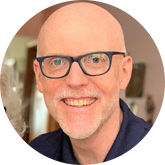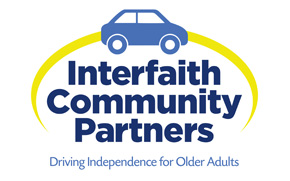By Brian P. Davis, Owner, Home Helpers Home Care of Hinsdale

As you connect with older adult friends or loved ones, take notice of any changes in their condition. Perhaps they’re a little more forgetful, have lost weight, or aren’t as social as they used to be – or even have cuts or bruises. These indicators are signs they may need a little help with everyday life. We call this “Noticing the Need.”
So, what should you be looking for? According to Dr. Lewis A. Lipsitz, a geriatrician and professor of medicine at the Harvard Medical School, as people grow older and develop age-related diseases, two of the most common are the loss of mobility and the loss of cognition. These are very broad areas, so let’s break them down.
Hygiene. Are their clothes disheveled, stained, or ripped? Is their toothbrush being used? Are they cleaning their dentures every night? Bathing regularly?
Housekeeping. Is the bathroom long overdue for cleaning? Is there any food that’s been left out too long? Spoiled, outdated, or moldy food in the fridge? A sink full of dishes is no big deal, unless there isn’t even one clean teaspoon or coffee cup around. Then it may be time to engage in a service to help with the cleaning on a regular basis.
Memory. No one’s memory is perfect but leaving the stove on or repeatedly locking oneself out of the house could be signs of dementia. So could forgetting names of relatives and close friends, forgetting their date of birth (or yours), and asking a question and then asking it again right after you’ve given them an answer. Early detection of dementia matters, so it’s important to contact their physician.
Dexterity and balance. Not being able to grasp the handrail, being unable to step over a small obstacle, or a decline in balance puts them at great risk for falling. According to the National Council on Aging, falls are the leading cause of injuries. The fear of falling is also a wellness issue among older adults, who may unnecessarily limit their engagements if they feel that going out is too risky.
Socializing. Retirement brings free time—sometimes too much. It ends interaction with co-workers. Without something to replace that, your loved one risks isolation and depression. If they don’t go to Bingo anymore because they can no longer drive, or if everyone in their bridge group has passed away, then companion care could be a terrific solution. Caregivers can come to the house and play games, help with hobbies, and even accompany your loved one to senior centers or lunch dates with friends. It’s important that your loved one always has something to look forward to.
If you “notice the need” for your loved one, in addition to seeking services from non-profits like ICP, seek out local a licensed home care agency to answer your questions and provide a free in-home care assessment to build a customized care plan to meet your loved one’s needs. Bringing in support early is a great way for your loved one to remain independent and safe in their own home.

